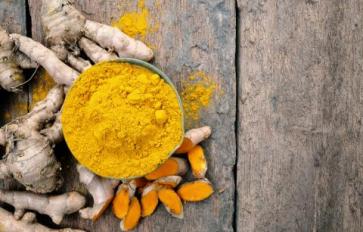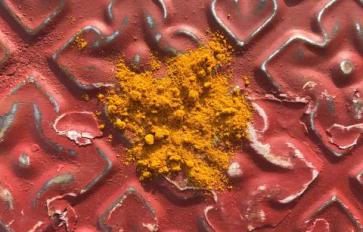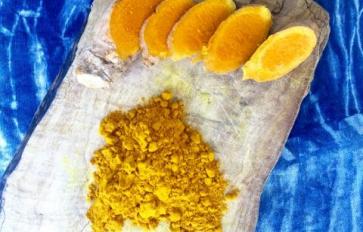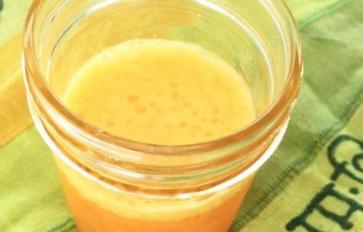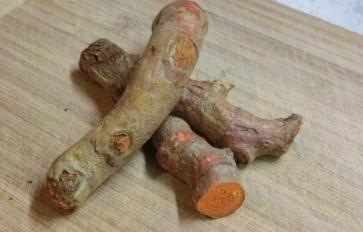
Turmeric is the spice that is best known as being responsible for the flavor and color of curry. However, this plant contains a compound called curcumin, which has amazing abilities to protect humans from many diseases. Turmeric’s taste is unique, and so are its potent healing powers that make it a must have in your spice or homeopathic cabinet!
Improves Mood and Memory in the Elderly
60 healthy adults between the ages of 60-85 received either a curcumin compound called Longvida or a placebo. Their working memory was measured by asking them to perform certain tasks. Just one hour after injection, the group that received curcumin performed better than those that did not. Another experiment in this study gave the curcumin compound to the people four weeks in a row. After four weeks of continuous treatment, the group that received curcumin had better working memory and mood (more calmness, more contentedness, and less fatigue due to psychological stress).
2. Improves Depression
56 people with major depressive disorder participated in a study to determine if curcumin could improve their mental health. The experimental group took 500 mg of curcumin twice a day. The control group took a placebo. The study was double-blinded, meaning no one knew which group was taking the curcumin or the placebo, not even the researchers. The trial lasted eight weeks. Starting at week four and continuing to the end of the study, the group that received curcumin reported significant improvements in several mood-related symptoms over the group that did not get curcumin.
3. Kills Breast Cancer
A breast cancer cell line called MDA-MB-231 is known to be very aggressive regarding how fast it grows and how aggressive the cells are at moving to new places. Researchers picked this cell line to test the effect of curcumin against breast cancer. When they treated these cells with curcumin, the cells began to die. Examining the molecular changes that occurred in cells that were treated, the researchers found that curcumin blocked the production of an enzyme called fatty acid synthase (FAS), which produces fat molecules inside the cell. In another experiment, they deleted the FAS gene in these cells and saw the same effect that curcumin caused: cell death. The authors concluded that curcumin may be killing these breast cancer cells by blocking the production of FAS.
4. Supports the Liver
Researchers who studied ways to treat non-alcoholic fatty liver disease (NAFLD) tested whether giving people curcumin every day for 8 weeks would improve the disease. People who received the placebo treatment only lost 28% of their liver fat, while those who got curcumin lost a whopping 79% of their liver fat. Curcumin treatment also lowered people’s body mass index (BMI), blood sugar levels, blood total cholesterol, and blood LDL cholesterol levels.
5. Protects Against Heart Disease
33 people with coronary artery disease (CAD) participated in a study in which they received either 500 mg of curcumin, four times per day for eight weeks, or a placebo treatment. Several risk factors for CAD were measured at the start of the experiment and at the end. Eight weeks of daily curcumin treatment lowered the levels of triglycerides, LDL cholesterol, and VLDL cholesterol in the blood.
References
1. Cox et al. “Investigation of the effects of solid lipid curcumin on cognition and mood in a healthy older population.” Journal of Psychopharmacology. 2015 May; 29(5):642-51.
2. Fan et al. “Curcumin inhibits intracellular fatty acid synthase and induces apoptosis in human breast cancer MDA-MB-231 cells.” Oncology Reports. 2016 May;35(5):2651-6.
3. Lopresti et al. “Curcumin for the treatment of major depression: a randomised, double-blind, placebo controlled study.” Journal of Affective Disorders. 2014; 167:368-75.
4. Rahmani et al. “Treatment of Non-alcoholic Fatty Liver Disease with Curcumin: A Randomized Placebo-controlled Trial.” Phytotherapy Research. 2016 Jun 8.
5. Mirzabeigi et al. “The Effect of Curcumin on some of Traditional and Non-traditional Cardiovascular Risk Factors: A Pilot Randomized, Double-blind, Placebo-controlled Trial.” Iranian Journal of Pharmacology Research. 2015 Spring; 14(2):479-86.

